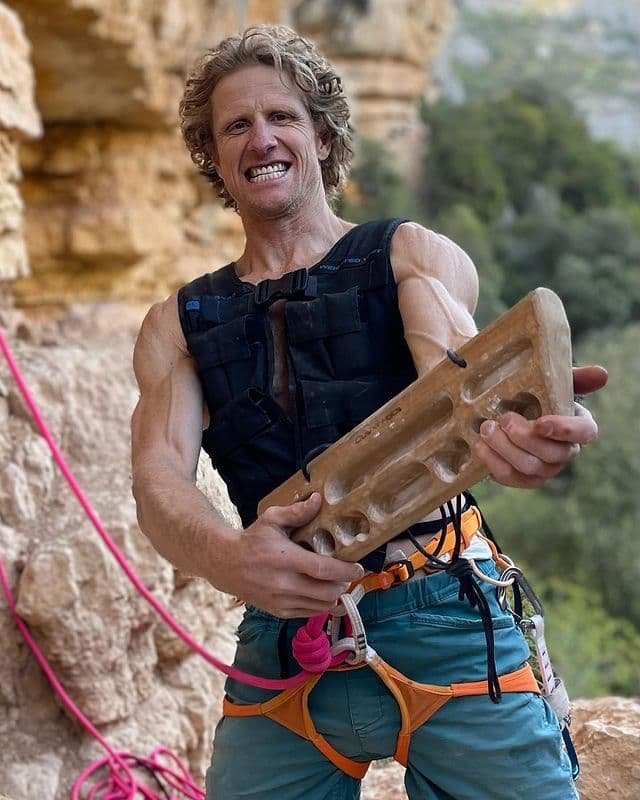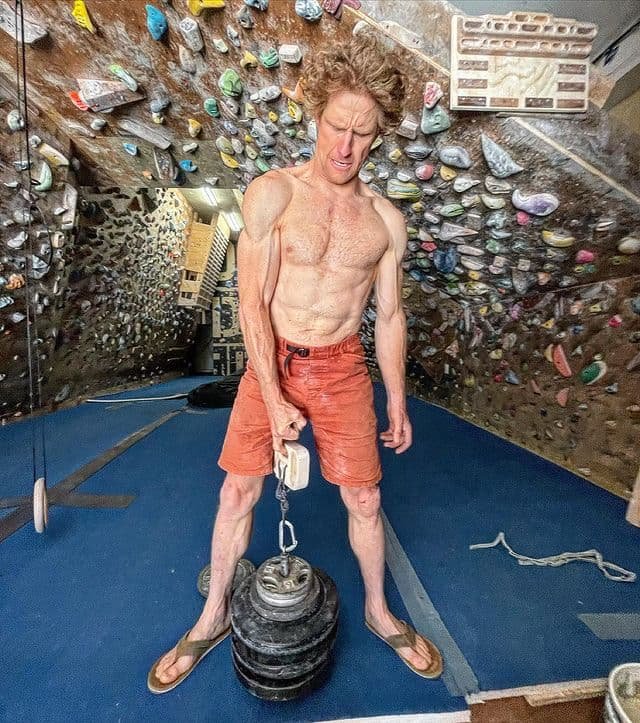
 Roni Essex
Freediver, Spearo, Creator
Roni Essex
Freediver, Spearo, Creator

 Roni Essex
Freediver, Spearo, Creator
Roni Essex
Freediver, Spearo, Creator
In E6 of the Alchemy Podcast, Luca Malaguti interviewed pro-climber Tim Emmett. Among other interesting stuff, they also spoke tapped into the theory of marginal gains. What is that theory and can it be applied to freediving?
It's really interesting that we're doing this interview today, Luca, because today is a big day for me. It's the first time in the last 15 years that I'm at the strongest I've ever been. Today, and I'm 48 years old, I managed to hang off two fingers with one arm for three seconds. I've never been able to take my feet off the ground with two fingers before on that little pocket up there. And it's less than a first joint. If you look at your fingers in front of you, they'll tip at the end. It's like just less than that first crease.

I've been doing strength training workouts since the end of January this year. And today was the first day that I absolutely crushed all of them apart from two. I'm about to go to Spain to try and climb the hardest route of my life, which I started working on in 2017, called Era Vella. It is like a 200-foot route, which overhangs by 40 degrees, and it's got two finger pockets all the way up it, so you just climb, you try and get it from the bottom to the top on two-finger pockets without falling off, and it's a real test of strength & endurance.
There are quite a few people that have done it. Definitely one of the more popular 9A's but I'm sort of more of an all-round climber. I'm pretty psyched right now. I haven't drunk any alcohol for four months and I've been doing loads of training and lots of stretching. I feel really, really good.
For me, if I want to reach my personal best or set a new limit for myself, I think about anything on a daily basis that I can do to help me get there. And that's lifestyle, training, anything. So yes, not drinking alcohol is one of the catalysts to be able to do that. If I was still drinking

The theory of marginal gains. It was introduced by the British cycling team. The British cycling team used to be the worst cycling team in the world. They got this new coach, I forget his name, but he was adamant about changing 1% about every aspect. So he would change 1% of the interior of the van where they would store the bicycles, so dust could be seen - dust that could affect the gears. They would change 1% improvement on the gear of the clothing of the cyclist. So more aerodynamic gear. They would test different gels for muscle recovery, 1% gain. And so all of these 1% changes turned out to be improvements in different aspects of cycling, which is a phenomenal amount of topics from mechanics to physiology. When you add them all up, the theory of marginal gains, they make a big difference.